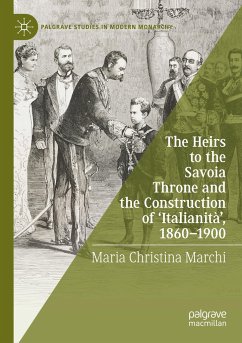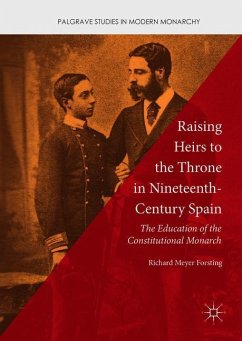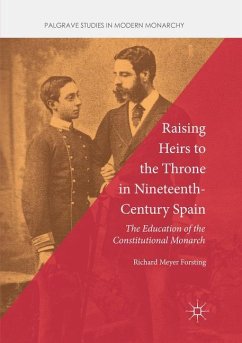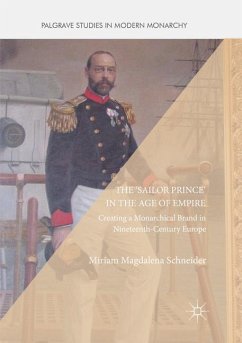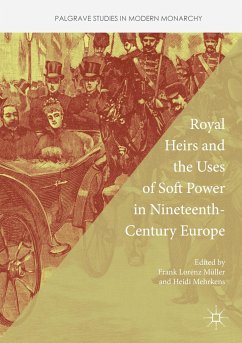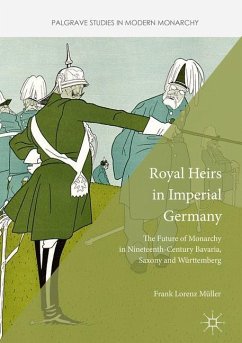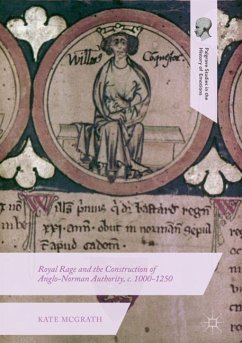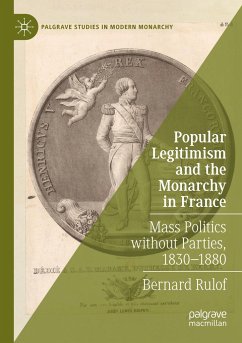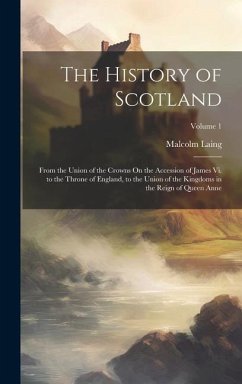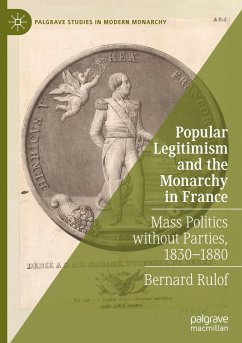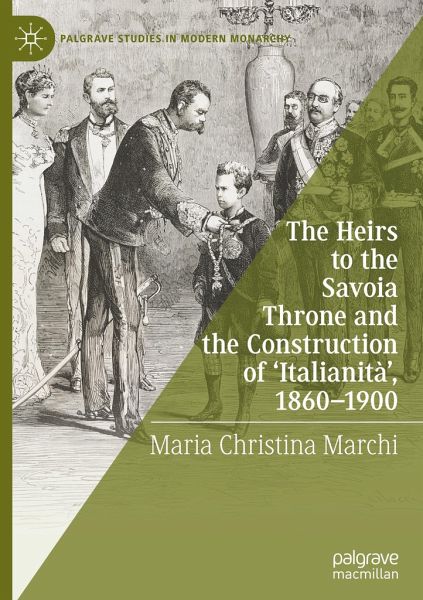
The Heirs to the Savoia Throne and the Construction of 'Italianità', 1860-1900
Versandkostenfrei!
Versandfertig in 6-10 Tagen
98,99 €
inkl. MwSt.
Weitere Ausgaben:

PAYBACK Punkte
49 °P sammeln!
This book explores the evolution of the role of the heirs to the throne of Italy between 1860 and 1900. It focuses on the future kings Umberto I (1844-1900) and Vittorio Emanuele III (1869-1947), and their respective spouses, Margherita of Savoia (1851-1926) and Elena of Montenegro (1873-1952). It sheds light on the soft power the Italian royals were attempting to generate, by identifying and examining four specific areas of monarchical activity: firstly, the heirs' public role and the manner in which they attempted to craft an Italian identity through a process of self-presentation; secondly,...
This book explores the evolution of the role of the heirs to the throne of Italy between 1860 and 1900. It focuses on the future kings Umberto I (1844-1900) and Vittorio Emanuele III (1869-1947), and their respective spouses, Margherita of Savoia (1851-1926) and Elena of Montenegro (1873-1952). It sheds light on the soft power the Italian royals were attempting to generate, by identifying and examining four specific areas of monarchical activity: firstly, the heirs' public role and the manner in which they attempted to craft an Italian identity through a process of self-presentation; secondly, the national, royal, linguistic and military education of the heirs; thirdly, the promotion of a family-centred dynasty deploying both male and female elements in the public realm; and finally the readiness to embrace different modes of mobility in the construction of italianità. By analysing the growing importance of the royal heirs and their performance on the public stage in post-Risorgimento Italy, this study investigates the attempted construction of a cohesive national identity through the crown and, more specifically, the heirs to the throne.





